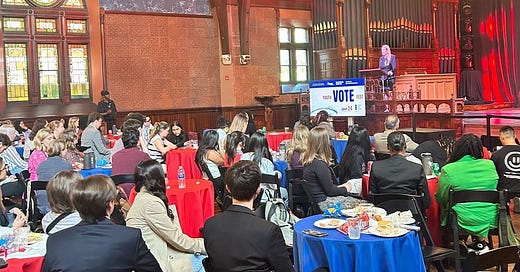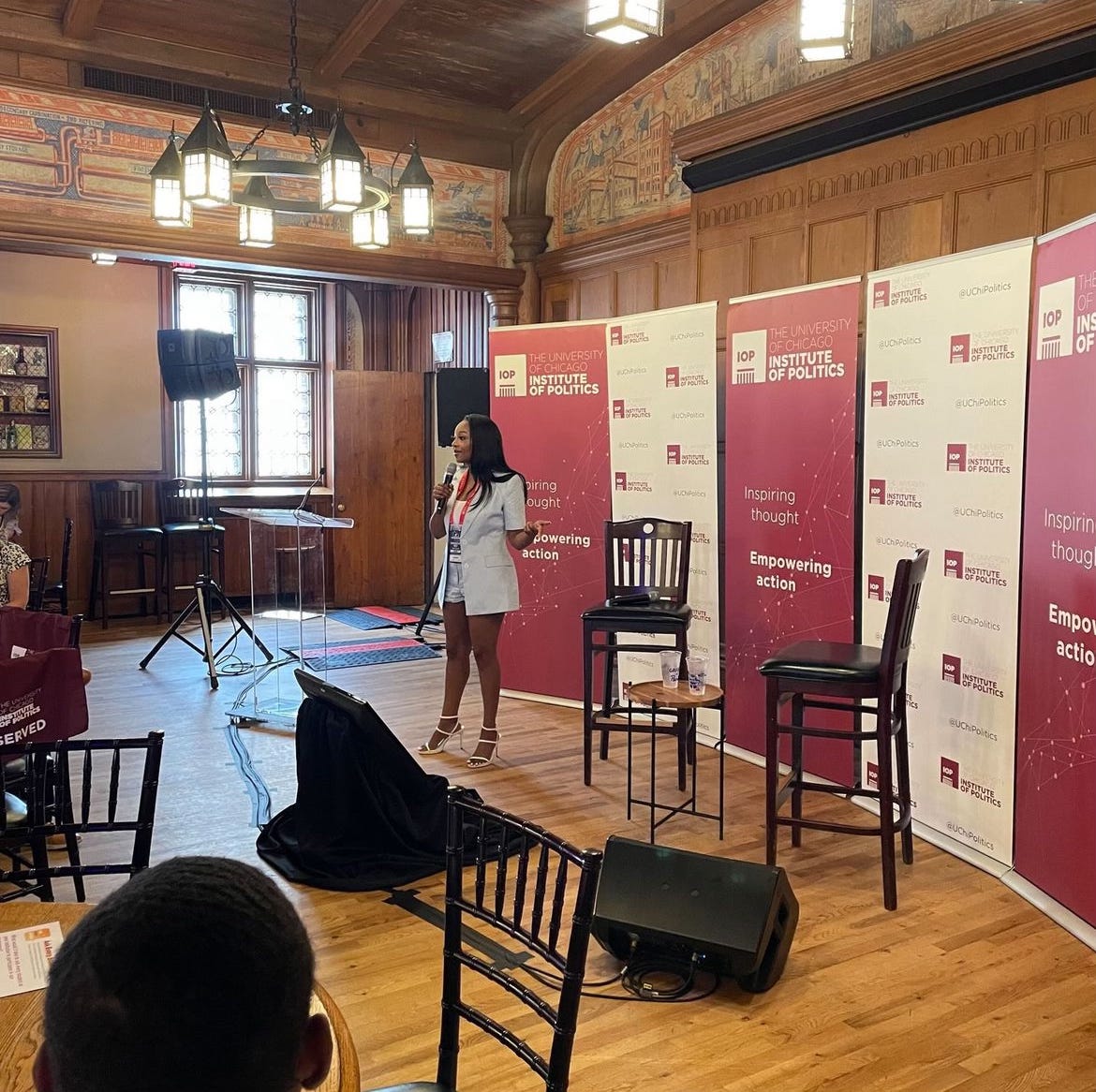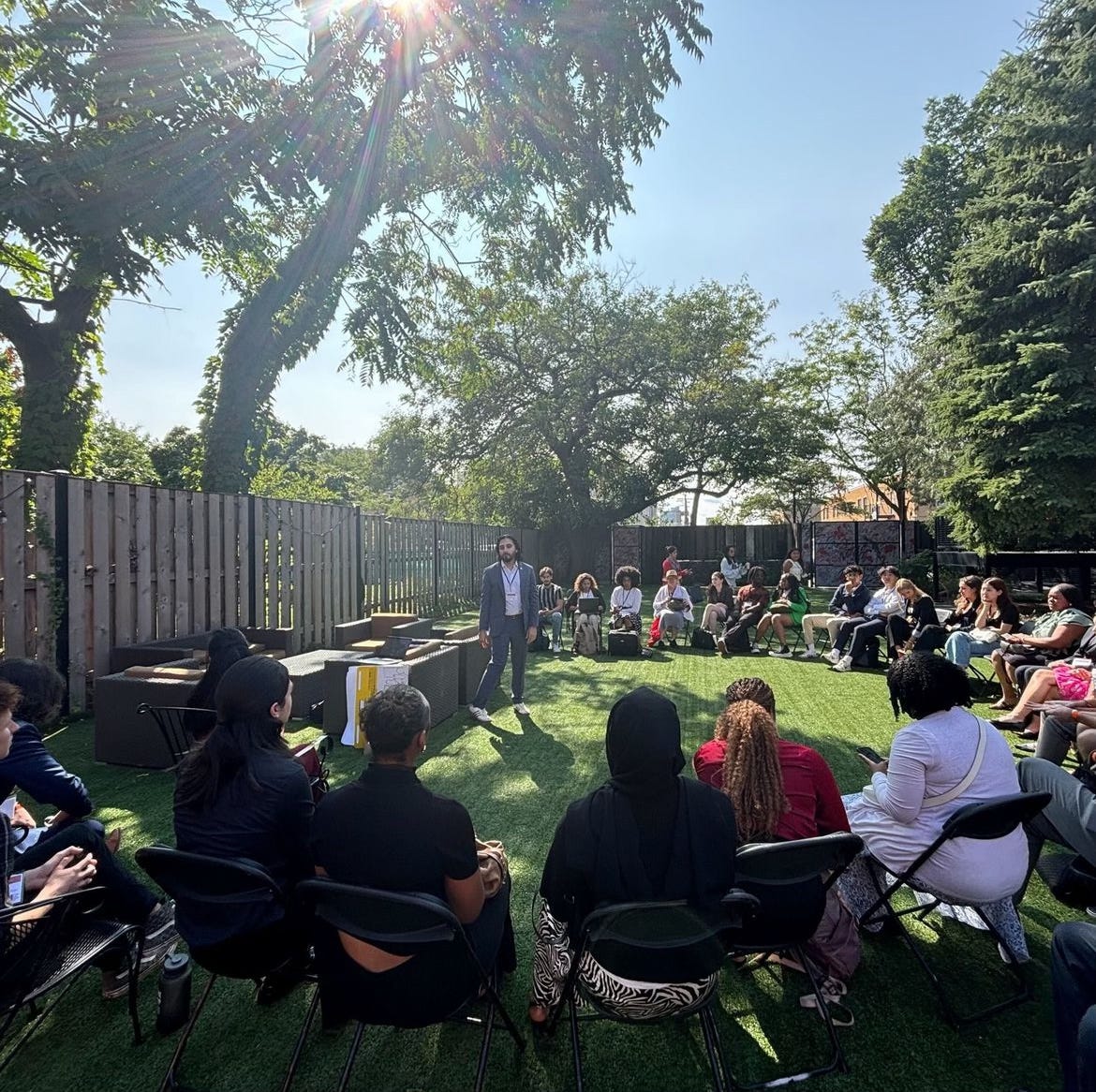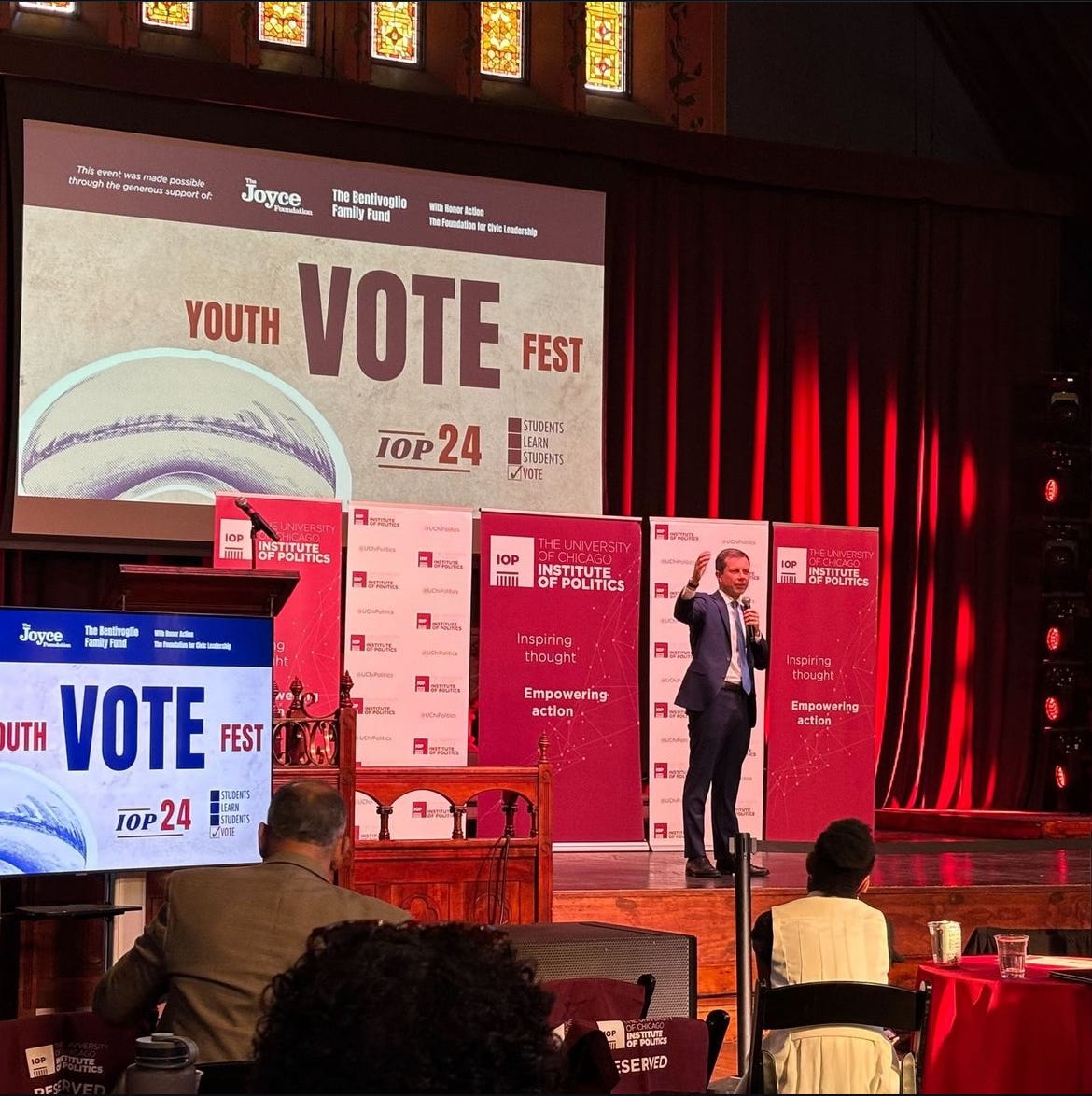Conventional wisdom: What student gatherings during the RNC and DNC tell us about efforts to grow the student vote ahead of Election Day
This summer the Students Learn Students Vote (SLSV) Coalition and the University of Chicago Institute of Politics co-hosted two events - one in Milwaukee during the Republican National Convention, and the second in Chicago during the Democratic National Convention - that gathered student vote activists from around the country for a full day of voter engagement workshops, networking, and prominent speakers.
The events, called Youth VoteFest, were nonpartisan in nature, but their featured speakers were selected to appeal to student audiences who were interested in the respective party conventions taking place at the time and city of each event. Each day began with opening remarks, followed by a set of interactive workshops for student attendees conducted by SLSV Coalition team members and partners, with featured speakers in the afternoon. With the 2024 election just days away, the SLSV Coalition team took some time to reflect on the experience and what it meant to them, the student vote leaders who attended, and the work of the SLSV Coalition this fall and moving forward.
Young, inspiring leaders can make a big impression.
Without exception, the featured speakers at each event made a compelling case for the value of young people advocating for what they care about by taking on leadership roles in their communities and engaging with democratic institutions. But the most resonant voices were those whose ages and worldview align with today’s student voters. At Milwaukee Youth VoteFest the two youngest speakers, Indiana State Republican Party Director of Diversity and Engagement Whitley Yates and Republican climate activist Benji Backer, offered surprising perspectives on issues not traditionally associated with the GOP while making the case for the youngest generations of voters to change that. “They showed that there really are some issues that young people care about that transcend party lines,” said SLSV Coalition Co-Founder and Executive Director Clarissa Unger, who attended both events and presented a workshop at Youth VoteFest Milwaukee.
SLSV Coalition Program and Communications Coordinator Eliana Reed also attended and presented at the Milwaukee event, and was struck by the civility with which Yates and Backer were able to speak on two often contentious topics. “They didn’t have an accusatory tone when it came to talking about what the students in the room could be doing to act on these issues,” said Reed. “I felt like their remarks were very uplifting, encouraging, and motivating for the students to hear.”
At Youth VoteFest Chicago, two twenty-something elected officials, Tennessee State Representative (and member of the famed “Tennessee three”) Justin J. Pearson and Florida Congressman Maxwell Frost, stood out. “Rep. Pearson gave me goosebumps,” said Jahnavi Rao, the President and Founder of New Voters, who conducted a workshop and was a featured speaker at the Chicago event. “I was deeply moved by both the passion of the speakers and the engagement of the audience. I know students are eager to make a difference and be heard, but you could truly feel the passion in the room throughout the entire day.”
“It was clear that students were especially excited to hear from Rep. Frost,” said SLSV Coalition Partnerships Director Bianca Rosales. “He was so personable and relatable, which really connected with them, and through his inspiring speech, he showed them the power they hold and what's possible when young people are in positions of leadership.”
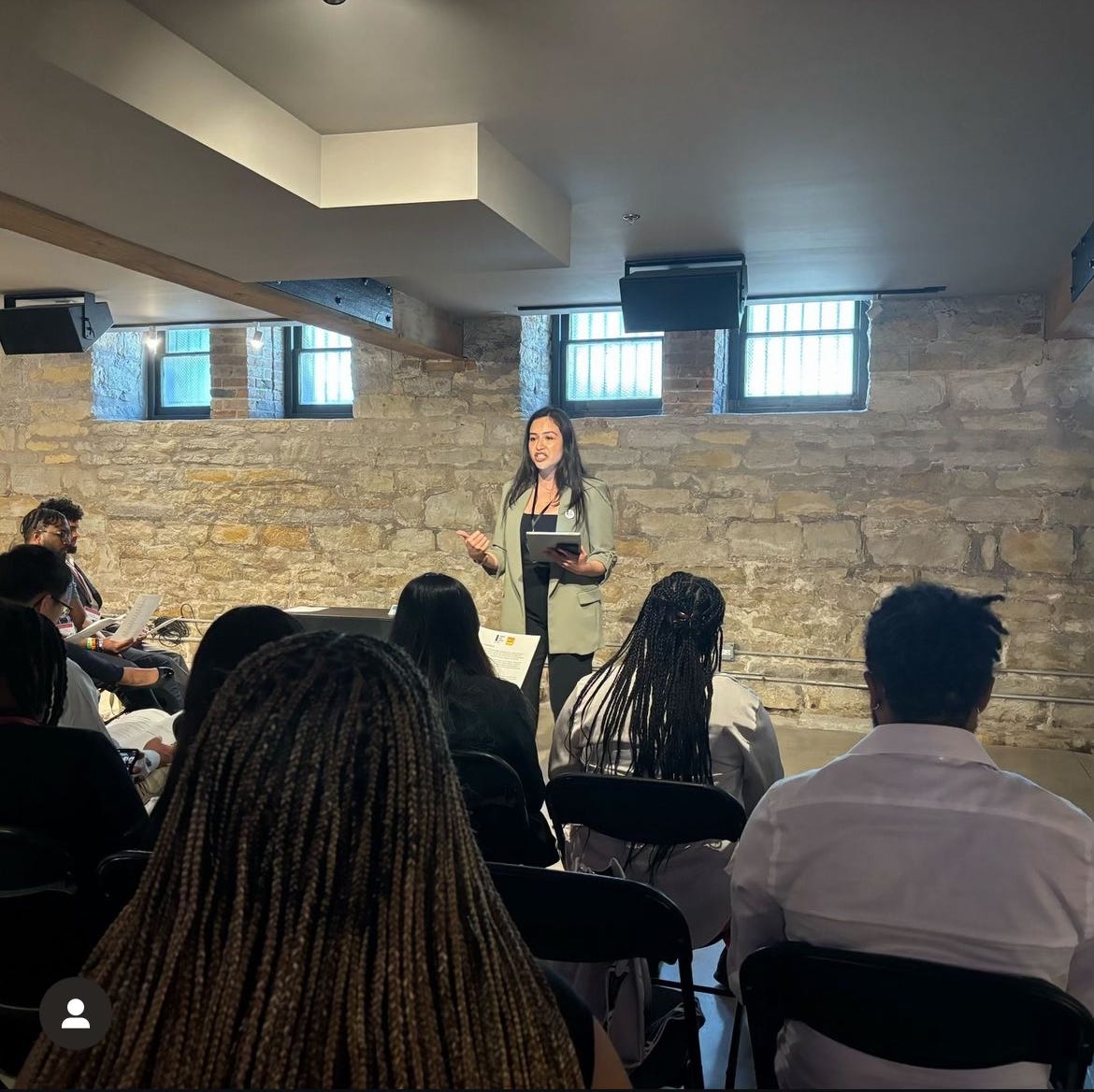
The power of collaboration can’t be overstated.
Each event began with interactive workshops conducted by members of the SLSV Coalition team, as well as one workshop conducted by Rao specifically for high school students. A common thread through all the workshops was an emphasis on how collaborative partnerships and coalition-building can help students mobilize more effectively.
SLSV Coalition Deputy Director Eddy Zerbe attended and presented at Youth VoteFest Chicago, running a workshop on how to organize and execute on-campus celebrations for the fall Civic Holidays. He said that his participants came away from his session with a deeper understanding of how the right relationships can bolster their work. “By prioritizing creative partnerships, finding specific ways to add some interactivity and fun to events, and meeting people where they're at, events can be more engaging and ultimately reach more students,” said Zerbe.
Unger, whose session in Milwaukee focused on coalition-building, noted a wide range of knowledge levels about nonpartisan student voting coalitions among participants, but worked to ensure everyone left with a shared understanding of the broader principles at play. “The main takeaway I wanted students to walk away with is that they don’t have to do nonpartisan voter engagement work alone, that we can reach more people and that this work is more impactful when we work in coalitions and invite others in to be a part of it,” said Unger.
Exposing students to examples of cross-partisanship sends a powerful message.
In some ways, a political party convention backdrop is anathema to the contemporary student voting experience. According to Gallup, more young people identify as independent than with either major political party, and evidence points to that lack of affiliation having as much to do with distrust of the parties themselves than students’ political ideology. It’s not surprising, then, that some of the events’ most memorable speakers were those that poked holes in the barriers between the US’ two major political parties or partisanship in general.
“One moment that really stood out to me was when former Representative Adam Kinzinger talked about putting country over party,” said University of Chicago student Paisley Templeton, who attended the Chicago event. During his remarks as a featured speaker in Chicago, Kinzinger spoke of his experience opposing leaders in his own political party on the basis of issues he believes transcend the partisan ideological spectrum.
Other speakers made strong impressions in the way that they interact with people who they know disagree with their political beliefs. Former South Bend, Indiana, Mayor Pete Buttigieg spoke of his frequent appearances on Fox News, a channel that attracts an audience whose conservative political leanings are at odds with his own. “I want them to at least hear the argument,” said Buttigieg of Fox News viewers, explaining that many of them simply aren’t being exposed to facts and arguments that question what their preferred news diet tells them.
“I thought Mayor Buttigieg gave a really effective demonstration of why communicating your beliefs is valuable, even when most of the room disagrees with you,” said SLSV Coalition Communications Director Danny Fersh, who attended and presented at both events. “It’s really hard to speak up when you know you’re in the minority, and it’s even harder if you think you have to change everyone else’s minds. Aiming for something more attainable - just being heard - could help more students speak up in difficult situations.”
Featured speakers in Milwaukee spoke of the potential for a more open, gentler political discourse. Right-wing politics and sports podcaster Clay Travis implored students to be open to persuasive arguments of all kinds after sharing his personal journey of shifting political beliefs that led to him changing political parties. To end the day, former Congressman Trey Gowdy emphasized the importance of separating political disagreements from personal animus. “Some of my closest friends… would never vote for me,” said Gowdy.
For most student voters, any experiences engaging with their country’s democracy has meant navigating a very polarized political atmosphere. By modeling and trumpeting successes communicating across partisan lines - and tempering expectations for what success actually looks like - Youth VoteFest speakers charted a course for a younger generation of leaders to find ways to bridge divides in their campus communities.
The upshot
If there was one common thread connecting all of Youth VoteFest’s speakers and programming, it was a plea to student vote leaders to broaden their perspectives to look beyond political stereotypes, partisan divides, and immediate impact. None of this diminishes the importance of the 2024 election or the differences between the candidates on the ballot, but it does serve to underline to all attendees that the work of advocating for their beliefs within a democracy does not stop with any one election. Regardless of next week’s outcomes, the student vote leaders who attended Youth VoteFest are better equipped to lead and build power going forward thanks to their experiences in Milwaukee and Chicago.
